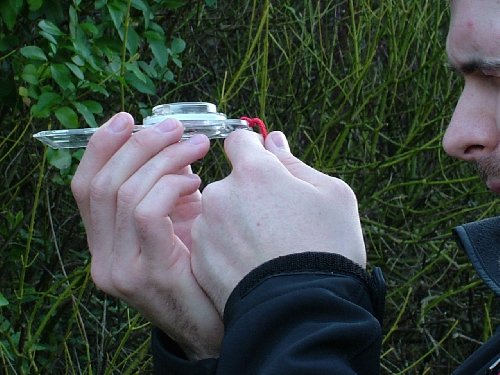
Ah, the great outdoors! With the ever-increasing popularity of outdoor activities such as hiking, orienteering, and mountaineering, there’s no better time to learn how to navigate through the wilderness. In today’s digital age, it’s easy to rely on GPS devices or mobile apps for navigation, but there’s something undeniably satisfying about going back to basics and using a good old-fashioned compass.
So, how do you choose the best compass for your navigational needs? Don’t worry, we’ve got you covered. In this comprehensive guide, we’ll discuss everything you need to know about compasses and how to select the perfect one for you.
Understanding the Basics of Compasses
Before diving into the various types of compasses, it’s essential to understand the basics of how a compass works. In the simplest terms, a compass is a device that shows the cardinal directions (north, east, south, and west) by using a magnetised needle that aligns with the Earth’s magnetic field.
Compasses are part of a broader category of devices for navigation, which also includes GPS devices, maps, and other tools. However, compasses have the unique advantage of being reliable even in remote locations or when electronic devices fail. That’s why they’ve remained a popular choice for outdoor enthusiasts for centuries.
Key Features to Look for When Choosing the Best Compass for Navigation
When selecting the perfect compass for your outdoor adventures, consider the following key features:
1. Needle Stability and Responsiveness
A high-quality compass should have a needle that is both stable and responsive. This means it should settle quickly after being moved and remain steady while you’re using it. Look for a compass with a needle that is fluid-filled or has a jewelled bearing, as these tend to offer the best performance in terms of stability and responsiveness.
2. Durability and Build Quality
When you’re out exploring the great outdoors, your compass may be exposed to harsh conditions, including rain, snow, and rough handling. It’s crucial to choose a compass that is robust and well-built to withstand these challenges. Look for a compass made of durable materials like high-quality plastic, metal, or even acrylic, and ensure that it is waterproof or at least water-resistant.
3. Sighting Mirror
A sighting mirror is a handy feature that allows you to take more accurate bearings. By reflecting the compass dial in the mirror, you can simultaneously align the compass needle with a distant landmark, making it easier to take precise measurements. This feature can be especially useful for orienteering or when navigating in challenging terrain.
4. Declination Adjustment
The Earth’s magnetic field varies from place to place, which means that the magnetic north is not always the same as the geographic north. This difference is known as declination, and it’s essential to account for it when navigating with a compass. Some compasses come with a built-in declination adjustment feature, which allows you to set the correct declination for your location easily. This feature can be a real game-changer when it comes to ensuring accurate navigation.
5. Luminescent Features
If you plan to use your compass in low-light conditions or at night, look for one with luminescent features. These can include glow-in-the-dark markings on the dial or a needle that is coated with luminescent paint. This will make it much easier to read your compass when the sun goes down or during cloudy, overcast days.
6. Additional Features
Some compasses come with extra features that can be useful depending on your specific needs. These may include a built-in magnifying glass for reading maps, a clinometer for measuring angles of slope, or a ruler to help with distance measurements on a map. While these features aren’t essential for everyone, they can certainly come in handy for certain outdoor activities and navigation tasks.
Popular Compass Brands to Consider
When choosing the best compass for navigation, it’s also a good idea to look at popular, reputable brands known for their high-quality products. Two such brands that you may want to consider include:
- Silva: A Swedish company with a long history of producing top-notch compasses for various outdoor activities. Their compasses are known for their durability, accuracy, and user-friendly design.
- Garmin: While Garmin is primarily known for its GPS devices, they also offer a range of compasses that are well-suited for outdoor enthusiasts. Garmin compasses are typically packed with useful features and built to withstand the elements.
Conclusion
In conclusion, choosing the best compass for navigation is a crucial step in ensuring successful outdoor adventures. By considering the key features we outlined above and selecting a reputable brand, you’ll be well on your way to finding the perfect compass for your needs. Remember, a reliable compass can make all the difference when you’re out in the wilderness, helping you stay on track and avoid getting lost.
So, whether you’re a seasoned outdoor enthusiast or a newcomer to the world of navigation, take the time to research and invest in a quality compass. Happy exploring, and may your adventures be filled with stunning landscapes, unforgettable experiences, and, of course, accurate navigation!
If you’re ready to begin your search for the perfect compass, head over to Rock and Mountain to explore their wide range of navigation devices, including top-notch compasses from brands like Silva and Garmin. With the right compass in hand, you’ll be well-equipped to conquer the great outdoors, one step at a time.

